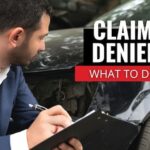When it come to insurance policies, never guess. Be clarified on everything. Here are Top 7 Exclusions in Insurance Policies That Could Cost You Big.
Ignorance can cause financial, emotional, and sometimes irreversible harm when it comes to insurance.
After signing an insurance policy, most people feel a bit more at ease. We believe that we are covered. The harsh reality is that most of us are not as insured as we believe. Why? Not included. You may have overlooked those small passages in your policy because they were difficult to understand or seemed unimportant at the time.
However, those exclusions? They are important. In fact, when you most need assistance, they may be responsible your claim is rejected.
I’d like to take you through seven of the most prevalent—and expensive—insurance exclusions that frequently take customers by surprise nowadays. I want to equip you, not frighten you. Because understanding what is and isn’t covered can be as crucial.
Click to get quality insurance today
Top 7 Exclusions in Insurance Policies That Could Cost You Big
Natural catastrophes and divine actions
Let’s begin by discussing one of the most significant and most misinterpreted exclusions: natural disasters. Imagine hurricanes, wildfires, earthquakes, or floods.
Many homeowners believe that these incidents are covered by their regular insurance. The majority don’t. Actually, flood damage needs a separate policy and is usually not covered by regular home insurance. In many states, the same is true of earthquakes.
What would happen, then, if a hurricane caused your cellar to flood or a storm surge struck your house? The repairs will probably be your responsibility unless you have another disaster-specific policy.
The bottom line: Spend some time obtaining separate disaster coverage if you reside in a high-risk area. It’s frequently less expensive than starting again without it.
Deterioration or carelessness
Insurance is not a strategy for upkeep. Don’t expect your insurance company to cover the cost of repairs if your plumbing breaks down after years of neglect or if your home’s roofing leaks because it’s 25 years old and you didn’t fix it.
Exclusions for wear and tear are rather prevalent. Maintaining the condition of your property is expected of you by your insurer. They will pay for abrupt, unforeseen harm, not issues you might have avoided.
Why this matters: Regular maintenance must be maintained. Ignoring a little problem now could result in a claim being rejected tomorrow.
Intentional harm
Although it should go without saying, your insurance will not cover you if you intentionally cause harm. Everything from burning your automobile on fire to arranging a break-in to receive compensation falls under this category.
But here’s where it gets complicated: even in cases where the damage wasn’t clearly “intentional,” some claims are rejected under this exception. Let’s say your teen trashes the house after throwing a crazy party. Certain rules might take that deliberate activity into account and decline to cover cleanup costs.
Advice: Clearly define who is protected and what is meant by “intentional.” Discuss gray regions with your insurance provider.
Home-Based Business Activities
Numerous individuals than ever before are working from home as freelancers or operating enterprises thanks to remote work. The unpleasant reality is that your homeowners insurance may not pay for it if you are operating your business from home and anything goes wrong, such as a client tripping and getting hurt or your equipment being stolen.
Business-related claims are not covered by many typical house policies. This implies that you may be in serious trouble if your pricey laptop, which you utilize for graphic design work, is broken.
What to do: Inquire about obtaining business insurance or adding a rider if you operate from home. It’s a straightforward action that safeguards your income.
Motorists or Vehicle Use Excluded
Car owners are particularly affected by this. It’s not always the case that anybody you hand the keys to is covered by your auto insurance.
Certain drivers are prohibited under certain policies, such as a household teen with a poor driving record. Or they don’t cover ridesharing or delivery driving; they only cover personal use. Therefore, a collision may not be covered at all if you use your vehicle for DoorDash or Uber without commercial coverage.
The risk: If you’re not insured for that type of use, a single accident may wipe all your funds. Be open and honest about how you utilize your vehicle at all times.
Pre-existing Health Insurance Conditions
Your financial stability could be subtly destroyed by this exclusion. Pre-existing conditions are either completely excluded or restricted in certain private health coverage plans or policies for traveling, while the regulations differ from one country to the next.
Let’s say you require care when traveling because you have diabetes or asthma. Your expenditures won’t be paid back, even if the care was necessary, if your disease is deemed pre-existing and isn’t reported or covered.
This means that you should always read the small print in vacation health coverage and divulge your whole medical history. Avoid assuming coverage.
Civil unrest combined with pandemics
This one surprised a lot of people in the past few years. Numerous insurance coverage claims were rejected during COVID-19 due to pandemic exclusions in the plans. In a similar vein, insurers denied business disruption claims, claiming that viruses did not constitute physical harm.
Then there is civil discontent. You may face tens of thousands of dollars in irrecoverable damages if your store sustains damage during a riot or protest and your policy does not cover such incidents.
Advice: Directly question your insurance about how your coverage handles public situations. Additionally, if you are a business owner, be sure that your strategy includes clear definitions of civil unrest and pandemic language.
Recognize What You’re Not Receiving
The fact that most insurers won’t tell you is that coverage is about the exclusions listed in the back pages, not the bold statements on the front page.
You can understand your policy without being a lawyer. All you have to do is slow down, seek clarification, and ask questions.
Do more than simply inquire about coverage while looking for insurance. Find out what isn’t. Encourage explanations in simple terms. Additionally, if you currently have insurance, it would be wise to evaluate your exclusions now to avoid a disaster.
Because you should only be protected by insurance if you are fully informed. And you do now.










